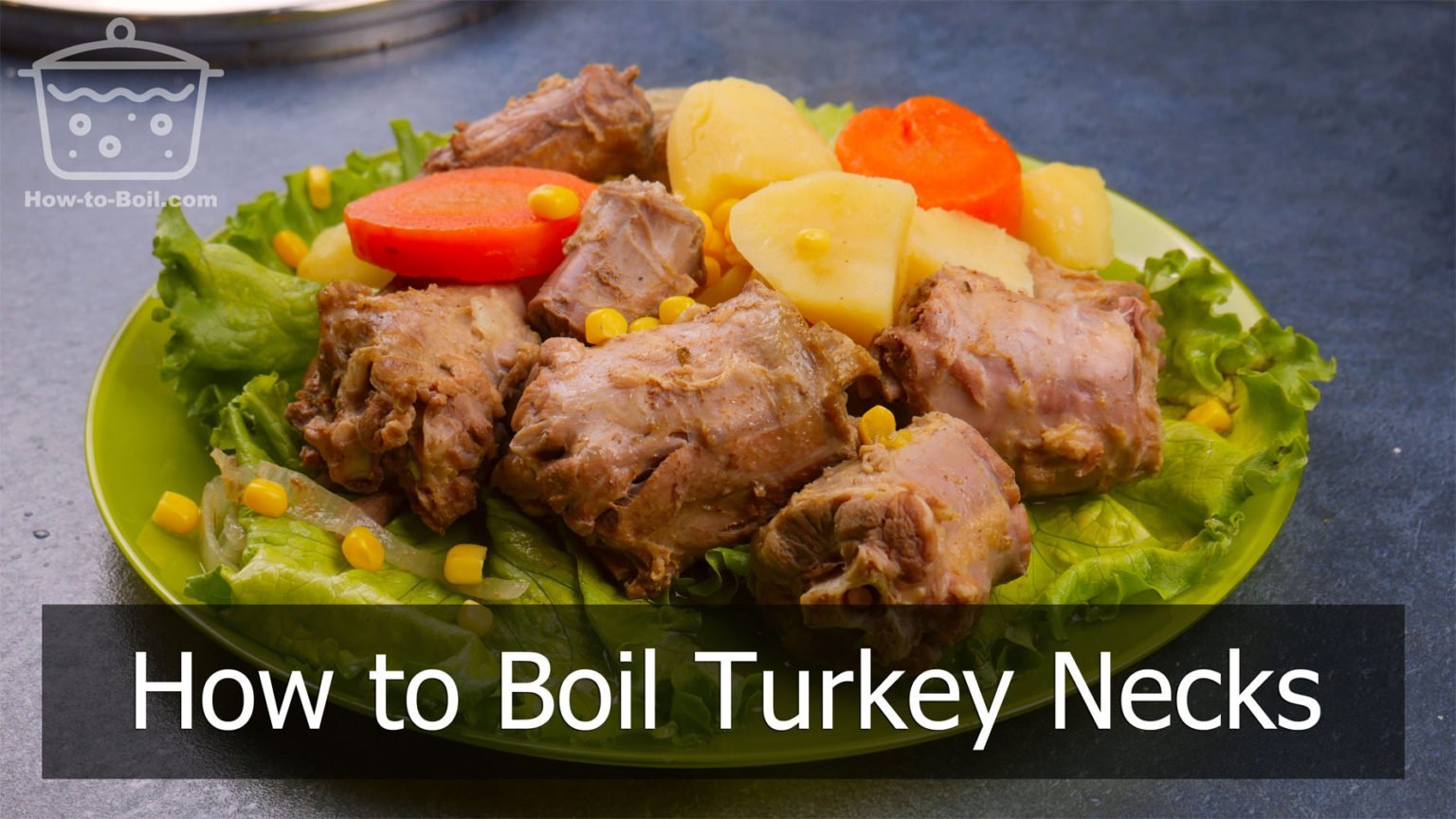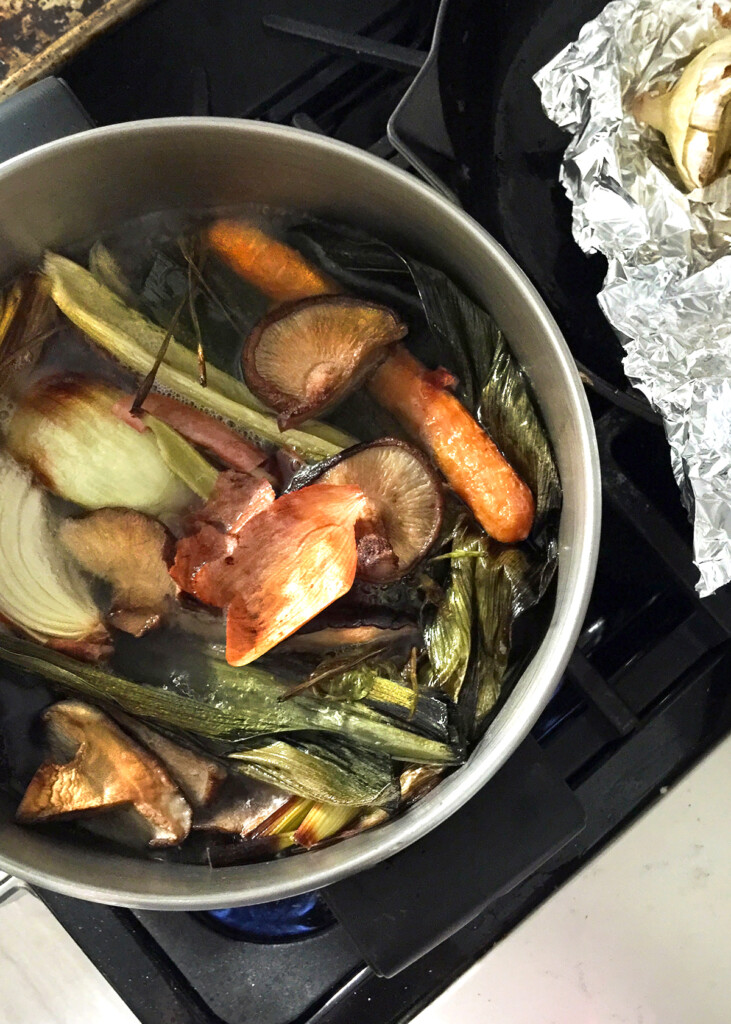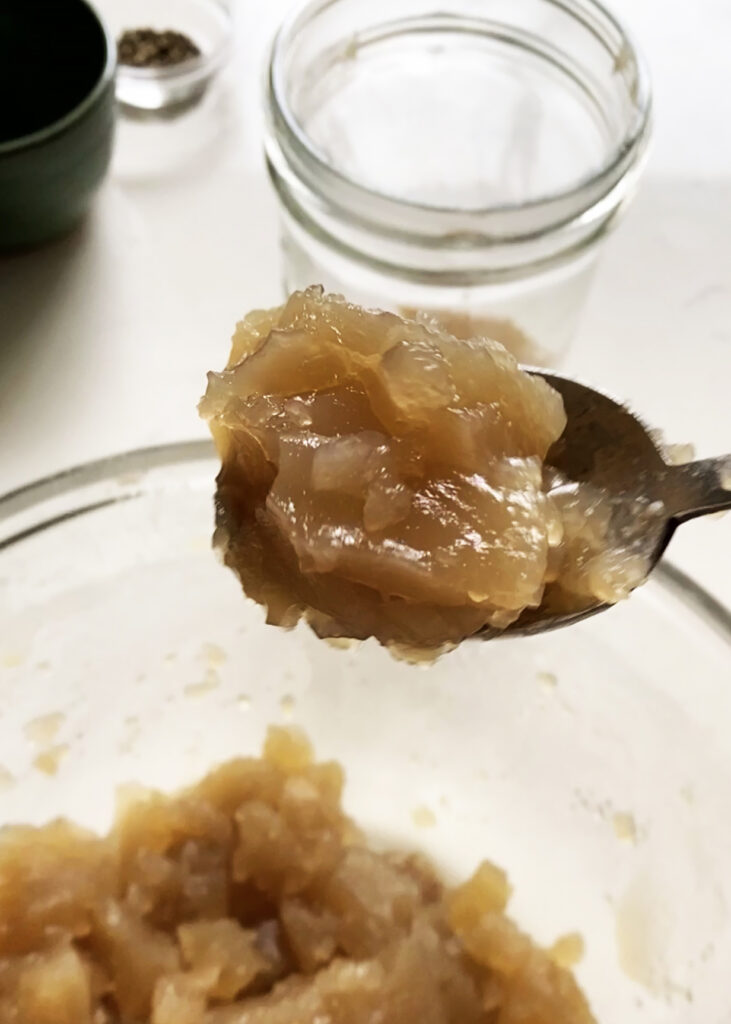If roasting turkey is labor then making Turkey Bone Broth is the glorious afterbirth. Shall we get into it?
Making homemade turkey stock is one of my favorite holiday traditions. There’s just something so comforting about a house filled with the aroma of simmering poultry bones, vegetables, and herbs. As the stock bubbles away on the stove, I look forward to using it to make soups, gravies, and sauces.
But after hours of boiling bones and scraps, a question always crosses my mind – can you actually boil turkey stock for too long? With so many complex flavors melding, is there a point when you’ve extracted every last ounce of taste, and continuing to boil results in diminishing returns?
I decided to investigate turkey stock boiling times and techniques to finally get to the bottom of this question. Read on for the surprising truth about whether it’s possible to over-boil your turkey stock.
The Delicate Science of Extracting Flavor
First, let’s look at what happens on a molecular level when making stock As the turkey bones simmer, water penetrates the marrow and collagen, pulling out gelatin, minerals, and other water-soluble compounds This process enhances the texture and nutrition of the stock.
Aromatics like onions, carrots, celery, and herbs also impart flavor as their cell walls slowly break down. Compounds like sulfur compounds, phenolic compounds, and terpenes are released into the simmering water, creating a layered, robust taste
The key is to extract as much soluble flavor and nutrients as possible without over-reducing the liquid or burning the ingredients Striking the right balance is an art
Ideal Turkey Stock Cooking Times
Most recipes call for simmering turkey stock for 2-4 hours. This gives enough time for the bones and vegetables to impart deep flavor and collagen-rich body without going past the point of diminishing returns.
However, cooking time can vary based on:
-
Amount and size of bones – More bones require longer cooking.
-
Water to bones ratio – Less water concentrates the stock faster.
-
Presence of vegetables and aromatics – Vegetables add flavor but also dilute the stock.
-
Simmer temperature – A gentle simmer extracts more flavor than a rapid boil.
As you can see, there is no perfect turkey stock boiling time. You have to consider all the variables.
What Happens If You Boil Stock Too Long?
Over-boiling stock can result in a “muddier” and less vibrant flavor. The bones and aromatics eventually give up all their compounds, leaving just water.
The stock can also turn cloudy or syrupy as it reduces too far, losing its clean taste. Andover reduced, concentrated stock may have an unpleasant, greasy mouthfeel.
However, a long simmer time alone does not damage a stock as long as the temperature remains low. The risk comes from boiling too vigorously, which causes ingredients to break down.
Tips for Maximizing Flavor Extraction
Instead of boiling stock longer, focus on gentle simmering and maximizing flavor to begin with:
-
Roast bones and veggies – Browned bones and aromatics have richer, deeper flavors.
-
Use a variety of veggies – Onion, carrot, celery, mushrooms, garlic, and herbs offer complexity.
-
Simmer uncovered – This allows subtle aromatic compounds to infuse the stock.
-
Skim regularly – Foam contains impurities so skimming makes a clearer stock.
-
Add some acid – A splash of vinegar or lemon brightens flavor.
-
Season generously – Salt and pepper are key to a savory stock.
With these tips, your stock will have a well-balanced, nuanced taste without over-boiling.
Knowing When to Stop
Keep your simmer lazy and flavorful. But how do you know precisely when to stop? Here are a few signs your stock is ready:
-
Aromatics have disintegrated and flavors have melded, 1-4 hours depending on bones and veggies used
-
Bones have released their collagen, making the stock coat the back of a spoon
-
Bitter, murky flavors emerge, indicating over-reduction
-
Desired concentration and texture is achieved
Taste the stock periodically to monitor its development. Then turn off the heat at the peak of flavor.
Final Verdict: Yes, You Can Over-Boil Stock!
In conclusion, my experiments revealed that you absolutely can over-boil turkey stock if the heat is too high or the cooking time exceeds the amount needed to extract flavors and gelatin from the ingredients.
However, when simmered gently for a moderate period of 1-4 hours, a long cooking time simply coaxes out more essence without any negative impact. Mastering the art of turkey stock requires finding the magic duration that unlocks the deepest, most layered tastes.
This holiday season, I encourage you to play with cooking times and temperatures. Find your own turkey stock boiling sweet spot through hands-on experience. And of course, sip your stock as you go so you can taste the progress! The joy is in the journey.

Pro Tips and Techniques for Turkey Bone Broth
- Prep in advance. You dont have to make a trip to the market for a whole new set of ingredients to make bone broth. As you prep for dinner, save an onion, a few carrots, and a couple of stalks of celery for your future turkey bone broth. If you plan to season the stock with herbs, save a few sprigs of thyme, too.
- Simmer, not boil. Except for the initial boil to get the pot up to temperature, maintain the temperature at a very gentle simmer. You simply cannot turn up the heat and boil it to make it faster. The whole point of a bone broth is using time to extract all the good stuff, i.e. collagen, nutrients, and of course, umami. A rough and rowdy boil will stir up to much junk and make the broth cloudy and emulsified with oil.
- Add vegetables later. Vegetables dont need to cook as long as bones do for flavor. In fact, simmering vegetables for too long changes their flavor, and not in a good way. Add the vegetables for the last hour of simmering.
- Add herbs very last. If you love the flavor of fresh herbs, add them last. Herbs need even less time than all those sturdy vegetables to cook. Toss them into the pot the last 20-30 minutes of the cook time, if at all.
- Skip the herbs. I leave herbs, spices, and seasonings out completely, so that the bone broth is a neutral flavor base to which I can add herbs and spices at the time I plan to consume it. Broths and stocks cross cuisines and the flavor of rosemary in the stock now, which is great for an all-American pot pie, might taste weird in an Indian curry later.
- Use a coffee filter. For crystal clear bone broth, pour the cooled bone broth through a sieve lined with a coffee filter.
- DO NOT PUT HOT STOCK IN THE REFRIGERATOR to cool down. The stock will make it too warm in the refrigerator, compromising the safety of the foods in there.

JavaScript is currently disabled in this browser. Reactivate it to view this content.

Health and Dietary Considerations of Turkey Bone Broth
As printed, this Turkey Bone Broth recipe is:
- dairy-free, if your turkey was roasted without butter and other dairy ingredients
- gluten-free
- sugar-free
- keto- paleo- and Whole30 compliant
This of course, depends on how you initially roasted the turkey. If the original roast turkey was brined with sugar, basted with butter, or marinated in any way with ingredients that contain gluten e.g. soy sauce, your bone broth will have some degree of these ingredients as well.

Can you cook turkey stock too long?
FAQ
What happens if you boil stock too long?
Can you overcook turkey stock?
How do you know when turkey stock is done?
What happens if you cook bone broth too long?
How do you make Turkey stock?
To make turkey stock: Break the leftover turkey carcass into pieces that’ll fit into a large pot. Cover the bones with cold water. If you want, add chopped vegetables, some herbs, and bay leaves. Bring it all to a boil. Reduce the heat to simmer the stock and let it lazily cook low and slow for hours. Skim it a few times if you’d like.
How long does Turkey stock take to cook?
A: Turkey stock takes about 4-6 hours to cook. However, you may need to cook it for longer if you are using a slow cooker or if your bones are very large. Q: What vegetables can I add to turkey stock? A: You can add any vegetables that you like to turkey stock. Some popular additions include carrots, celery, onions, garlic, and herbs.
Can you make Turkey stock every year?
Once you taste it you are going to want to make it every year, so from now on just remember to over-buy a little bit on all your celery, carrots, onions, and herbs, and you are all set to go for your turkey stock! Heat your turkey carcass with any turkey parts you have: neck, giblets, any skin, or leftover turkey drippings.
How long do you boil a chicken stock?
Bring to a boil and then lower the heat to a simmer. Skim to remove any foam and impurities that float to the top, then cover and simmer for 6 hours. Add celery, onion, carrots, garlic, and bay leaf, if using. Cover the pot and continue to simmer for 9 hours. To keep it from becoming foggy, be sure not to let the stock reach a hard boil.
